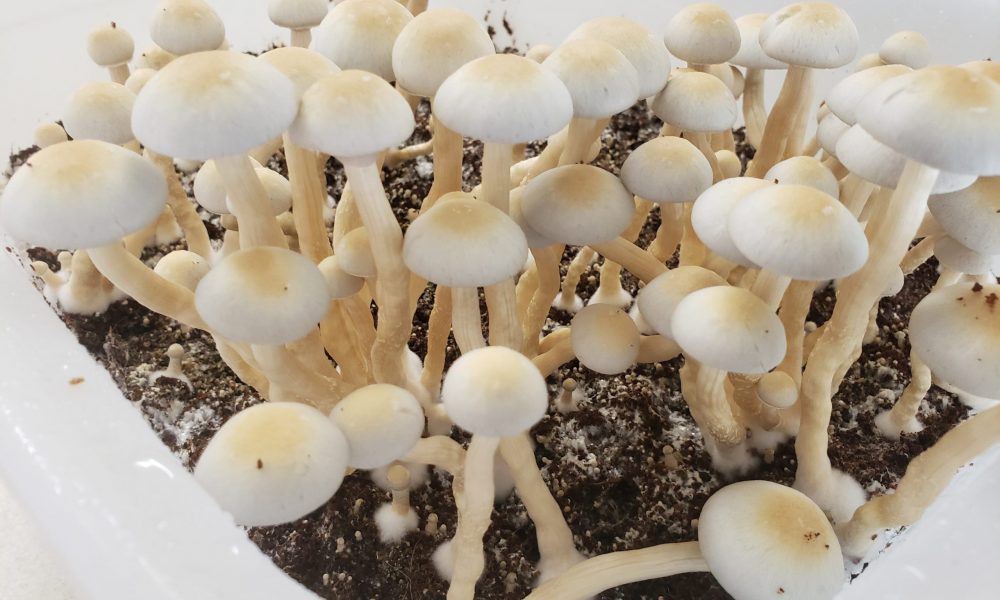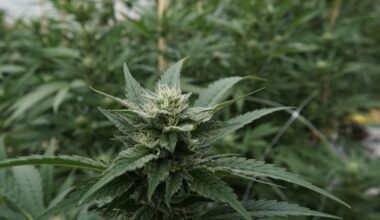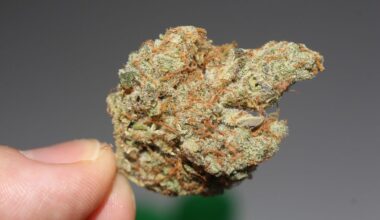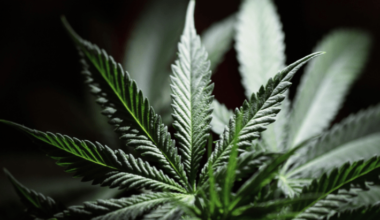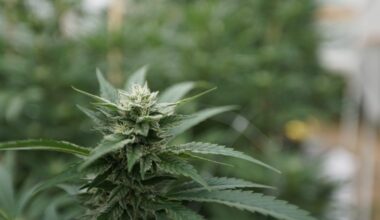A New York lawmaker on Monday introduced a bill to legalize psilocybin mushrooms for medical purposes and establish facilities where the psychedelic could be grown and administered to patients.
Assemblyman Pat Burke (D) filed the legislation, which would create a system in New York that’s similar to the psilocybin program that was legalized via a ballot initiative in Oregon last year.
The bill lists a series of medical maladies that could qualify a patient to access psilocybin—such as cancer, multiple sclerosis, PTSD, autism and Parkinson’s disease—but it also states that it could be recommended for “any other condition” certified by a practitioner. Therapists would need to take a two-hour training course provided by the Department of Health in order to certify patients for the psychedelic therapy.
Regulators with the Department of Health would be responsible for licensing psilocybin service centers where people could receive the treatment in a medically supervised environment, and they would also license cultivators, processors and testing facilities. There would also be a license for scientists to research the fungi.
—
Marijuana Moment is already tracking more than 1,300 cannabis, psychedelics and drug policy bills in state legislatures and Congress this year. Patreon supporters pledging at least $25/month get access to our interactive maps, charts and hearing calendar so they don’t miss any developments.![]()
Learn more about our marijuana bill tracker and become a supporter on Patreon to get access.
—
“Struggles with diseases like PTSD, depression, anxiety, and alcoholism can be major disruptors to a person’s livelihood as well as their family’s,” the justification section of the bill says. “These mental health detriments can deteriorate physical health, result in performance deficits on tasks, and increase rates of suicide. Psilocybin therapy is a breakthrough avenue for providing people with treatment for these ailments.”
A grant program with $2 million in funding would also be established to provide monetary assistance to military veterans and first responders such as firefighters, police officers and EMS workers to receive psilocybin treatment at a service center.
“Our first responders expose themselves to potential trauma on a daily basis to keep us safe and well. Ensuring their access to [psilocybin] treatment demonstrates our reciprocity to keep them safe and well,” Burke’s sponsor memo states. “Establishing a widespread route to provide New Yorker’s with this medical treatment would be a monumental step in providing mental health care to improve lives.”
Patients would need to obtain a renewable identification card designating them as eligible for psilocybin treatment for a one-year period. Terminally ill patients would not be subject to the one-year requirement.
The legislation lays out various rules and restrictions for licensees and practitioners, including a ban on having a psilocybin manufacturing facility being owned, or having employees, with certain felony convictions in the past three years. There’s an exception for people with felony conviction for selling or possessing controlled substances, however, unless those operations involved minors.
There is a bipartisan effort underway to utilize psilocybin in treating diseases such as PTSD, depression, anxiety, and alcoholism. Psilocybin therapy is a breakthrough avenue in treating these ailments. https://t.co/O9wlaFxpGv
— Pat Burke 🦬 🗽 (@PatBurkeNY) December 14, 2021
Regulators’ licensing decisions will be influenced by factors such as whether applicants are a “minority- and/or women-owned business enterprise, a service-disabled veteran-owned business, or from communities disproportionally impacted by the enforcement of psilocybin prohibition.”
To obtain registration as a legal psilocybin businesses, one requirement would be for the applicant to enter into a labor peace agreement with a union and maintain that agreement for the duration of their registration.
The treatment centers “would offer a safe physical environment supervised by trained monitors to negate the minimal risk involved with psilocybin,” the justification section says.
There are also provisions requiring regulators to approve cultivator and service center licenses “to provide services to unserved and underserved areas of the state.”
“Such additional registered organizations shall be reflective of the demographics of the state, be representative of communities disproportionately impacted by psilocybin prohibition, and be culturally, linguistically, and medically competent to serve unserved and underserved areas of the state,” the text of the bill states. “The department shall actively promote racial, ethnic, and gender diversity when registering additional registered organizations.”
The legislation, which has been referred to the Assembly Health Committee, also includes specific language protecting certified patients, researchers and people who work at licensed psilocybin facilities from facing “arrest, prosecution or penalty in any manner.” They could also not be punished by “a business or occupational or professional licensing board” over activities made legal under the bill.
The proposal would create an advisory board, with members appointed by the governor and legislative leaders who would review and make recommendations about the program.
Members “shall have an expertise in public and behavioral health, substance use disorder treatment, effective rehabilitative treatment for adults and juveniles, homelessness and housing, economic development, environmental conservation, job training and placement, criminal justice, and drug policy.”
“Further, the advisory board shall include residents from communities most impacted by psilocybin prohibition, people with prior drug convictions, the formerly incarcerated, and representatives from the farming industry, psilocybin industry, and organizations serving communities impacted by past federal and state drug policies,” the bill says.
As it stands, there are currently no licensed psilocybin centers in the U.S., though Oregon regulators are in the process of developing rules to authorize them after voters approve a first-of-its-kind medical psilocybin initiative during last year’s election.
But as activists have worked to advance policies like psychedelics decriminalization in cities across the country, the issue has started to gain traction in state legislatures and Congress.
A bill to legalize psychedelics in California advanced through the Senate and two Assembly committees this year before being pulled by the sponsor to buy more time to generate support among lawmakers. The plan is to take up the reform during next year’s second half of the legislative session, and the senator behind the measure says he’s confident it will pass.
Earlier this year, Texas enacted a law directing state officials to study psychedelics’ medical value.
The governor of Connecticut signed a bill in June that includes language requiring the state to carry out a study into the therapeutic potential of psilocybin mushrooms.
The top Democrat in the Florida Senate filed a bill in September that would require the state to research the medical benefits of psychedelics such as psilocybin and MDMA.
Pennsylvania lawmakers also filed a bill this session to promote research on the therapeutic benefits of psilocybin.
A New York lawmaker introduced a bill in June that would require the state to establish an institute to similarly research the medical value of psychedelics.
The Maine House of Representatives passed a drug decriminalization bill this year, but it later died in the Senate.
Meanwhile, as Virginia activists launch a push to decriminalize a wide range of psychedelics in the Commonwealth, two state lawmakers are touting the therapeutic potential of entheogenic substances like psilocybin mushrooms.
Locally, Denver became the first city in the U.S. to decriminalize psilocybin mushrooms in 2019, sparking a national reform movement.
Detroit voters approved a ballot initiative to widely decriminalize psychedelics last month, making it the latest in a growing number of jurisdictions to enact the reform.
In October, lawmakers in a fourth Massachusetts city, Easthampton, voted in favor of a resolution urging the decriminalization of certain entheogenic substances and other drugs.
The action comes months after the neighboring Northampton City Council passed a resolution stipulating that no government or police funds should be used to enforce laws criminalizing people for using or possessing entheogenic plants and fungi. Elsewhere in Massachusetts, Somerville and Cambridge have also moved to effectively decriminalize psychedelics.
The local measures also express support for two bills introduced in the Massachusetts state legislature this year. One would remove criminal penalties for possession of all currently illicit drugs and the other would establish a task force to study entheogenic substances with the eventual goal of legalizing and regulating the them.
Separately, Seattle’s City Council approved a resolution in October to decriminalize noncommercial activity around a wide range of psychedelic substances, including the cultivation and sharing of psilocybin mushrooms, ayahuasca, ibogaine and non-peyote-derived mescaline.
California activists were separately cleared to begin collecting signatures for a historic initiative to legalize psilocybin mushrooms in the state. Oakland, Santa Cruz and Arcata have already enacted psychedelics decriminalization.
In Oakland, the first city where a city council voted to broadly deprioritize criminalization of entheogenic substances, lawmakers approved a follow-up resolution in December that calls for the policy change to be adopted statewide and for local jurisdictions to be allowed to permit healing ceremonies where people could use psychedelics. Activists in the city are also hoping to expand upon the local decriminalization ordinance by creating a community-based model through which people could legally purchase entheogenic substances from local producers.
At the federal level, advocates experienced a setback after the U.S. House of Representatives voted against a proposal from Rep. Alexandria Ocasio-Cortez (D-NY) that would have removed a spending bill rider that advocates say has restricted federal funds for research into Schedule I drugs, including psychedelics such as psilocybin, MDMA and ibogaine. However, it picked up considerably more votes this round than when the congresswoman first introduced it in 2019.
Report provisions of separate, House-passed spending legislation also touch on the need to expand cannabis and psychedelics research. The panel urged the National Institute on Drug Abuse (NIDA) to support expanded marijuana studies, for example. It further says that federal health agencies should pursue research into the therapeutic potential of psychedelics for military veterans suffering from a host of mental health conditions.
There was an attempt by a Republican congressman to attach language into a defense bill that would promote research into psychedelics therapy for active duty military members, but it was not made in order in the House Rules Committee in September.
NIDA also recently announced it’s funding a study into whether psilocybin can help people quit smoking cigarettes.
An official with the U.S. Department of Veterans Affairs also said at a recent congressional hearing that the agency is “very closely” following research into the potential therapeutic benefits of psychedelics like MDMA for military veterans.
For what it’s worth, Rep. Earl Blumenauer (D-OR), a longstanding champion of marijuana reform in Congress, said in October that he intends to help bring the psychedelics reform movement to Capitol Hill “this year.”
In May, lawmakers in Congress filed the first-ever legislation to federally decriminalize possession of illicit substances.
Malta Lawmakers Approve Marijuana Legalization Bill, With President’s Signature Expected Soon
Medical Disclaimer:
The information provided in these blog posts is intended for general informational and educational purposes only. It is not a substitute for professional medical advice, diagnosis, or treatment. Always seek the advice of your physician or other qualified healthcare provider with any questions you may have regarding a medical condition. The use of any information provided in these blog posts is solely at your own risk. The authors and the website do not recommend or endorse any specific products, treatments, or procedures mentioned. Reliance on any information in these blog posts is solely at your own discretion.
